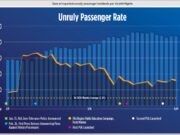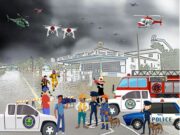BRUSSELS — Flight Safety Foundation today launched a new advisory committee to address safety considerations in unmanned autonomous and semi-autonomous flight operations and to serve as a forum to inform international safety policy and practices.The Autonomous and Remotely Piloted Aviation Systems (ARPAS) Advisory Committee (AC) will be an industry-government collaborative effort. The committee’s launch was announced today in conjunction with the Foundation’s 73rd annual International Air Safety Summit.
“Autonomous and semi-autonomous technology is evolving rapidly and it is critical that we work together to understand what is required to safely enable diverse uses of these new kinds of passenger and cargo operations and to safely integrate them into the airspace,” said Dr. Hassan Shahidi, president and CEO of the Foundation. “The Foundation will be developing consensus-based safety recommendations and policies, developing and sharing best practices, fostering global safety information sharing, and serving as a bridge between the traditional and unmanned aviation communities,” he said. “The ARPAS advisory committee will lead this effort.”
The ARPAS AC will be comprised of individuals from the Foundation’s member and strategic partner organizations. Committee membership will include unmanned aircraft systems operators, new advanced air mobility providers, manufacturers, researchers, and non-governmental organizations, as well as stakeholders from the broader aviation community, including commercial and general aviation operators, airports and regulators. The new advisory committee will be exploring ways to accelerate the safe use and integration of unmanned operations. One of the first use cases will be supporting humanitarian missions.
###
About Flight Safety Foundation
Flight Safety Foundation is an independent, nonprofit, international organization engaged in research, education, advocacy and communications to improve aviation safety. The Foundation’s mission is to connect, influence and lead global aviation safety.
Media Contact:
Frank Jackman
Vice President, Communications
+1 703.739.6700, ext. 116
jackman@flightsafety.org


